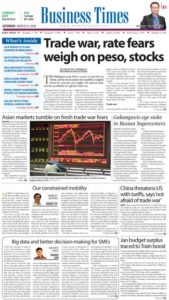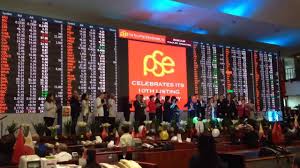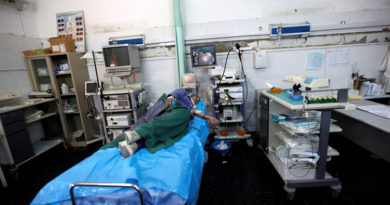ECONOMY-TRADE.FOREX.STOCKS: MANILA – ‘Trade war, rate fears weigh on peso, stocks’ – Saturday, March 24, 2018

Trade war, rate fears weigh on peso, stocks
The Philippine peso fell to a near 12-year low on Friday and the stock market also tumbled, weighed down by concerns over higher US interest rates and the possibility of a global trade war.
The currency lost 19 centavos to close at P52.39 against the dollar, its day low and the weakest finish since the P52.74:$1 recorded on July 19, 2006.
The Philippine Stock Exchange index (PSEi) fell back to the 7,900 level, losing 153.65 points or 1.89 percent to end the day at 7,970.80. The broader All Shares dropped 1.35 percent or 66.01 points to finish at 4,824.16.
The market had returned to 8,000 territory on Thursday after the US Federal Reserve raised interest rates by 25 basis points and indicated that its tightening pace could remain unchanged.
The outcome of the Fed meeting had the opposite effect on the peso, which lost 5 centavos on Thursday, and the Bangko Sentral ng Pilipinas’ decision not to raise its own policy rate likely contributed to Friday’s drop.
Monetary authorities, however, said the decline reflected market fundamentals.
“There is more demand for foreign exchange because the economy continues to grow,” Bangko Sentral Deputy Governor Diwa Guinigundo told reporters.
Higher demand for capital goods and raw materials imports, he claimed, was supporting the US dollar.
Trade war
At the stock market, analysts said that share prices had succumbed to renewed fears of a tit-for-tat trade war spurred by protectionist policies in the US.
“[This was] after US President Donald Trump escalated economic tensions with China by unveiling on Thursday extensive new trade restrictions that would effectively block $50 billion in Chinese imports from entering the US,” Regina Capital Development Corp. President Marita Limlingan said.
China in response threatened to slap tariffs on a wide range of US-made goods.
Garie Ouano, research director at China Bank Securities Corp., attributed Friday’s drop to a technical correction but said that trade war concerns “likely added to the jitters”.
Diversified Securities, Inc. trader Aniceto Pangan said rising tensions between Washington and Beijing were dragging stock markets down, which in the process “will affect global growth.”
European indices and Wall Street fell on Thursday and Asia followed, ignoring news that the US would be suspending the imposition of steep metal tariffs for key trading partners.
Locally, all sectoral indices settled in the red, led by holding firms that fell by 2.04 percent.
Over 2.54 billion shares valued P8.6 billion were traded.
Decliners outmatched advancers, 143 to 65, while 39 issues were unchanged.
Peso to stay weak
Analysts, meanwhile, expect the peso to remain weak given factors such as a widening current account deficit and further US rate hikes.
Outlooks are mixed, however, over the issue of whether or not the decline should be a concern.
London-based Capital Economics has said that the Philippines’ relatively low foreign debt was working in the country’s favor, accounting for just over 30 percent of gross domestic product and far below levels seen in economies hit by foreign currency debt crises.
Singapore’s DBS, meanwhile, has forecast a plunge to P54 versus the dollar this year, and a further slide to P56:$1 in 2019, given pressures from the Philippines’ budget and current account deficits.
The peso, currently the worst performer among Asia’s major currencies, is down over 4 percent since the start of the year.
The stock market, which hit record highs above 9,000 at the start of 2018, has fallen by nearly 7 percent year to date.








